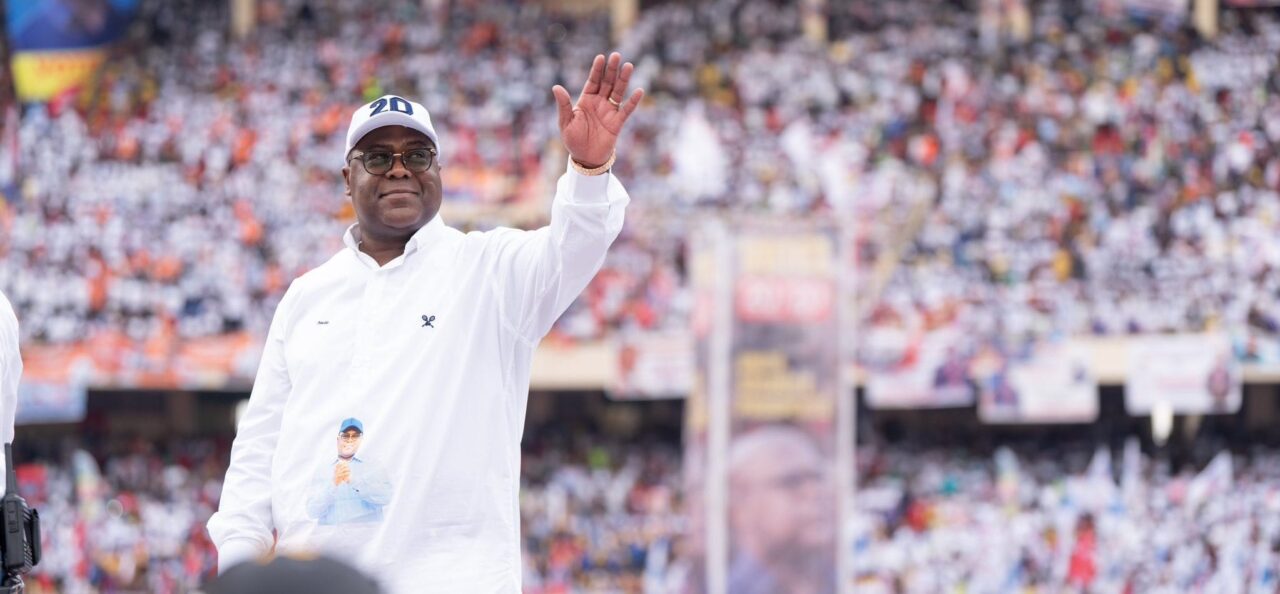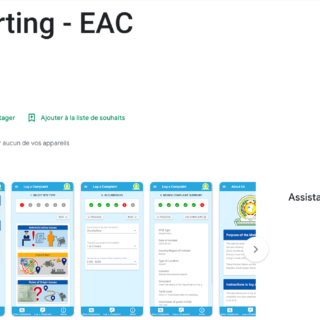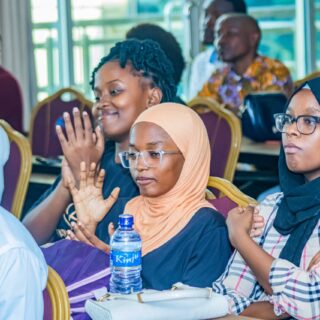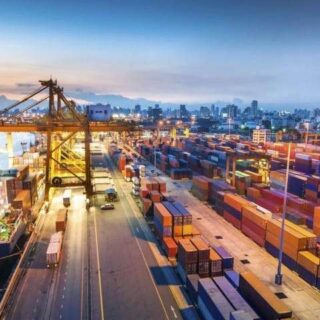
The campaign season has officially begun. Starting on Sunday, November 19, it will continue until December 19, with the elections scheduled for December 20, 2023.
President Tshisekedi, who has been in power for the past five years, wasted no time in setting the tone for the campaign. He was the first candidate to organize a meeting, launching his campaign at the iconic Les Martyrs stadium in Kinshasa.
At 60 years old, Tshisekedi, representing the UDPS party, is considered a strong contender for the presidency. His candidacy is supported by influential figures who asserted their status of massive political figures as opposition leaders during President Kabila’s tenure (2001-2019), such as Jean Pierre Bemba’s MLC, Vital Kamerhe’s UNC, and Bahati Modeste’s AFDC. This backing gives Tshisekedi a solid base of support in various provinces and regions of the DRC. It is worth noting that the opposition parties, on the other hand, have failed to unite behind a single candidate, which may result in their voices being dispersed.
On one hand, Tshisekedi has some relatively tangible achievements to showcase, demonstrating that he has made significant progress during his first term. Notably, he has implemented policies to provide free primary education for children and initiated projects to develop public infrastructure in all 26 provinces of the DRC.
However, some Congolese may choose not to vote for Tshisekedi again due to his failure to fulfill his promise of bringing peace to the eastern region of the country which continues to face conflict and instability.
These elections have seen the validation of 23 male candidates and one female candidate by the Electoral Commission. Among them, President Tshisekedi, Martin Fayulu, Denis Mukwege, and Moïse Katumbi are considered the frontrunners.
Despite being home to 70% of the world’s coltan reserves, a mineral widely used in the production of smartphones and other electronic devices, and possessing 30% of global diamond reserves, the Democratic Republic of the Congo remains one of the poorest countries in the world. This stark reality serves as a reminder of the challenges the country faces in harnessing and effectively managing its vast natural resources.
Overall, the upcoming elections hold great significance for the future of the Democratic Republic of the Congo, as its citizens prepare to choose their next leader in a bid to address the pressing issues facing their nation.



